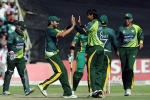- Web
- Humsa
- Videos
- Forum
- Q2A


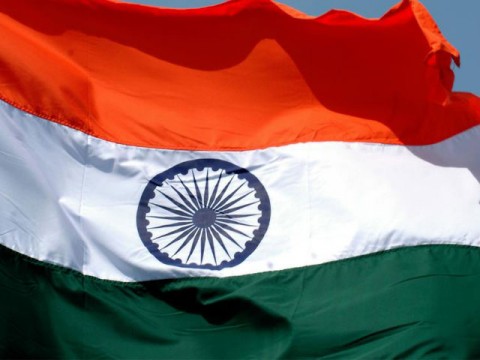
I am on my seventh trip to India since I first visited the country in 1976. Nothing is the same. The essential Indian narrative has gone from timelessness to disruption; the national icon from the lumbering elephant to the call centre to the high-tech entrepreneur.
The Delhi that I first knew was the gracious city of white bungalows, trimmed lawns, and broad boulevards laid out by Edwin Lutyens in 1911; now Old New Delhi, as I think of it, recalls a quaint colonial past in a city of 16 million people.Everything has changed - except India’s politics, which feels utterly familiar. You can’t help wondering when - or if - India’s politics will catch up with its society.
The big political news in recent months has been the return of the Gandhis. Not that they ever really went away. The 42-year-old Rahul Gandhi, son of Rajiv, grandson of Indira, great-grandson of Jawaharlal Nehru, great-great grandson of Motilal Nehru, has taken a senior position in the family business, known as the Indian National Congress party.
With parliamentary elections scheduled for next year, India’s vast tribe of pundits (derived from pandit, the Hindi word for ‘sage’) and political junkies are waiting with bated breath for an epic battle for the premiership between a coalition led by Gandhi and another led by Gujarat Chief Minister Narendra Modi, a figure equally known for his business-first mentality and his hardline Hindu nationalism.
India has a parliamentary rather than a presidential system, so in any case the two will not be running directly against one another. And Rahul (members of the Gandhi family are almost always referred to by first name) has said that he has no wish to serve as prime minister in 2014, even if the Congress party wins. He may even mean what he says, but neither the public nor his own party, desperate for a new infusion of Gandhi-family charisma, is prepared to hear it.
The family-run political party is hardly unique to India. It is in fact the norm in South Asia. In Pakistan, Zulfikar Ali Bhutto begat Benazir Bhutto, who married Asif Ali Zardari, the current president. (And both begat Bilawal Zardari, waiting in the wings at age 24.) Similar lineages have governed Bangladesh and Sri Lanka.
Dynasties can confer stability and predictability on otherwise chaotic democracies, especially during moments of crisis, but they do tend to devolve toward the fin de race. What’s more, these quasi-monarchies have trouble standing for anything beyond the family and the country’s historical connection to the family. The Nehru-Gandhi family ushered India into freedom and in the first generation preserved it from innumerable shocks; since then, nothing so great. India’s romance with the Gandhis, like America’s with the Kennedys, has been cemented by tragedy. Indira was assassinated in 1984; Rajiv in 1991.
The willingness to pay this awful price has given the family a special kind of legitimacy - almost an intrinsic right to rule. At the same time, this culling of the ranks has forced India to wait for a new generation of Gandhis to come along. They may be needed, but they’re also in very limited supply. Rajiv replaced Indira as prime minister, but he was in turn replaced by a veteran Congressman, PV Narasimha Rao. Only under Rao - along with finance minister Manmohan Singh, now prime minister - did the Congress party, and India, break from Nehru’s socialist faith, which had given the state a stranglehold over the economy.
The new India of entrepreneurship, innovation and dynamic growth dates from this moment. The rise of a non-Gandhi-centric Congress party would have constituted another phase of India’s maturation. But it was not to be. The party fell from power and broke into factions, some aligning themselves with Rajiv’s widow, Sonia, who had long shunned politics. Sonia agreed to become the party president in 1998 and has remained in that post ever since.
When the Congress party returned to power in 2004, Sonia shocked the country by declining to become prime minister. But Singh, whom she asked to take the post, has always deferred to her, and no one doubts who is the most powerful person in the country. The populist economic initiatives that Singh has pursued since taking over - which have proved highly popular - come from the party, not the government.
Now, the Sonia interregnum having runs its course, the new generation is ready to take over. Rahul’s younger sister, Priyanka, proved to be a deft campaigner with a common touch, but she’s married with children and retired from politics, at least temporarily.
In 2004, Rahul won the family seat in the ‘Hindi heartland’ state of Uttar Pradesh and then quite consciously disappeared into the long-term business of rebuilding the party at the grassroots. He has sought to instill a new spirit of meritocracy and transparency in the Indian Youth Congress, which had come to be viewed as a nest of young (and not-so-young) louts and timeservers.
Rahul is afflicted by an acute awareness of the pathological elements of the Congress party’s relationship to his family, even as he tries to exploit that special relationship to change a culture of nepotism, sycophancy, and gross favouritism. It’s a very delicate, and possibly paradoxical, enterprise. “I am a symptom of this problem,” he admitted bluntly in a 2008 speech. He has turned down a slot in Singh’s cabinet and possibly also the chief ministership of Uttar Pradesh and his mother’s job. He wants to be a humble worker in the Congress vineyards - at least until he is ready to fully emerge on the national scene. But the party may not allow him to be, such is the force of that Gandhi cult of personality.
When I think of Rahul’s predicament, I’m reminded of a mass audience with J Krishnamurti, a revered philosopher-guru, then 85, which I attended in Bombay in 1980. A bright light shone down on a tiny white-haired man on a stage. He said, with an asperity that bordered on bitterness, “You must not seek gurus. You must have the courage to listen to your own voice.” And the crowd roared back in unison, “Yes, master! We will follow our own voice!”
Followership is a very hard habit to break. Modi, Rahul’s rival for the premiership, suffers from no such ambivalence about authority. He is a fiery orator who knows very well how to hold and keep a crowd. Modi’s father sold tea from a cart at a railway station - as did Modi. Modi is himself the incarnation of the meritocratic principles of which Rahul speaks. He has said, “I am a fish in the sea, while that fellow” - and everyone knows which fellow - “is a fish in the aquarium.”
A son of the soil against a Gandhi scion, a classic strongman against a mild-mannered democrat, a nationalist who plays with fire against a committed secularist: It really would be fun to watch. Politics in India is a a big, noisy spectacle. But you have to wonder whether voters will begin to tire of it. The small-scale of endemic corruption of yesteryear has inflated to grotesque proportions as national wealth and the national budget have mushroomed.
All parties have been tainted; even the currency of the Gandhi family may have been devalued. Changing this culture may be well beyond Rahul’s reach. After all, the Congress party has an election to win, and elections require bottomless sums of cash, often ferried in bags and suitcases.India even has a new anti-corruption party - the Aam Aadmi (common man) Party - but it can’t win elections either without black money. Politics in India must change - but not tomorrow, or anytime soon.
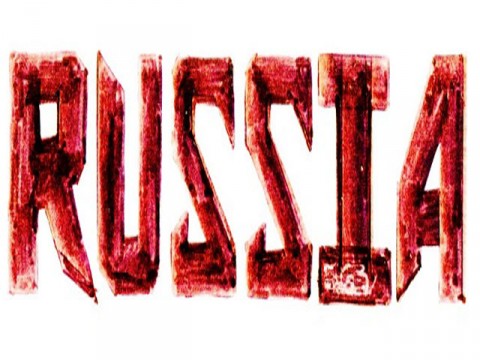 Russia said on Thursday it is trying to firm up plans for a new round of talks this month between global powers and Iran over Tehran’s nuclear programme, which the West suspects is aimed at developing a nuclear weapons capability.
Iranian news agency ISNA said on Wednesday that Iran and six world powers would resume talks in late January, but a Eu..... Read more
Russia said on Thursday it is trying to firm up plans for a new round of talks this month between global powers and Iran over Tehran’s nuclear programme, which the West suspects is aimed at developing a nuclear weapons capability.
Iranian news agency ISNA said on Wednesday that Iran and six world powers would resume talks in late January, but a Eu..... Read more
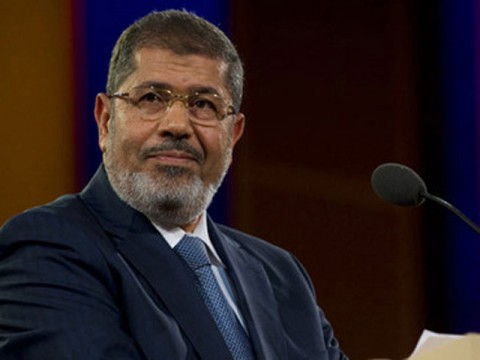 India said it was looking forward to strengthening economic ties with Egypt as President Mohamed Mursi headed to New Delhi for talks starting on Tuesday.
The Egyptian president is due to meet India's Prime Minister Manmohan Singh and business groups to bolster a blossoming trade relationship after paying a one-day visit to Pakistan on Monday. "Our..... Read more
India said it was looking forward to strengthening economic ties with Egypt as President Mohamed Mursi headed to New Delhi for talks starting on Tuesday.
The Egyptian president is due to meet India's Prime Minister Manmohan Singh and business groups to bolster a blossoming trade relationship after paying a one-day visit to Pakistan on Monday. "Our..... Read more
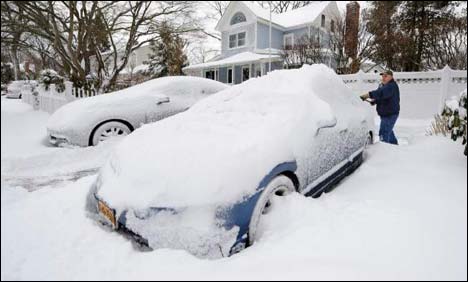 A massive winter storm pounding the northern United States Tuesday grounded 2,600 flights, closed hundreds of schools and made roadways and highways impassible.
At least four people were reportedly killed in accidents on icy and snow covered roads and highways.More than a dozen states from Minnesota to Virginia were in the path of the huge storm, which..... Read more
A massive winter storm pounding the northern United States Tuesday grounded 2,600 flights, closed hundreds of schools and made roadways and highways impassible.
At least four people were reportedly killed in accidents on icy and snow covered roads and highways.More than a dozen states from Minnesota to Virginia were in the path of the huge storm, which..... Read more






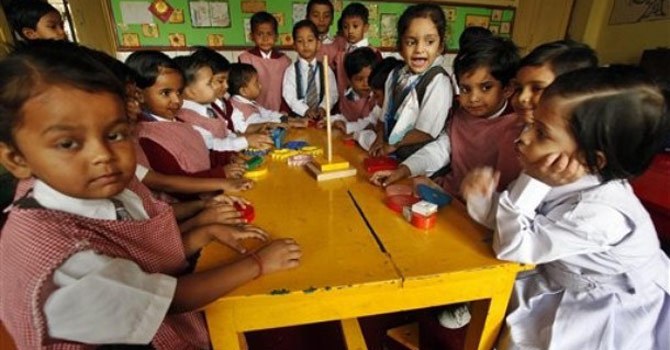





 Clean Chit (Faisal Raza Abidi ...
Clean Chit (Faisal Raza Abidi ...  Akhir Kiyon - 16th December 2...
Akhir Kiyon - 16th December 2...  To The Point - 16th December ...
To The Point - 16th December ...  Capital Talk â
Capital Talk â  Kal Tak - 16th December 2013
Kal Tak - 16th December 2013  Bay Laag - 16th December 2013
Bay Laag - 16th December 2013  Kharra Sach - 16th December 2...
Kharra Sach - 16th December 2...  Awaam - 15th December 2013
Awaam - 15th December 2013 





 Gold Miner
Gold Miner  Superbike GP
Superbike GP  Whipsaw Fighter
Whipsaw Fighter  PacMan
PacMan 

